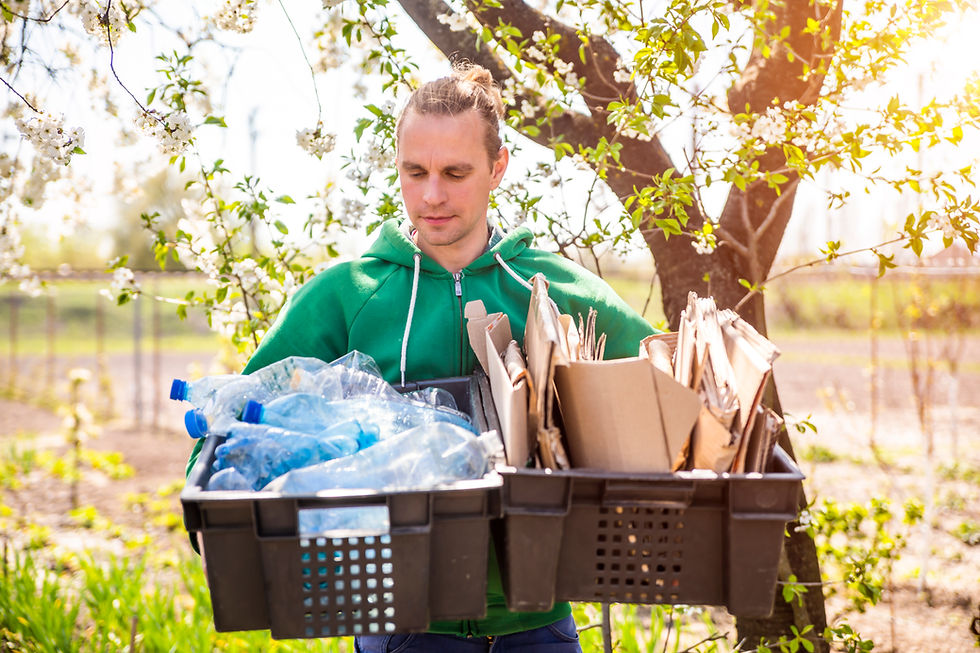Greenwashing: How to Identify and Avoid it
- Amira Richards
- Apr 28, 2023
- 3 min read

Climate change is one of the most significant ongoing issues globally and continues to get worse every day. There are a vast amount of things that contribute to climate change and people are one of the main contributors. There are many ways that we can help to try and combat climate change. It is important to actually make a change and difference instead of trying to make people believe that you are, this is what a lot of companies do. Some businesses focus more on convincing people that they are sustainable than putting things into place to actually achieve sustainability.
What is greenwashing?
Greenwashing was coined by the environmentalist Jay Westerveld in 1986. Greenwashing is when companies and businesses use marketing tools and advertising methods to market themselves as being sustainable when they may not be or they aren't as much as they are making out to be . Their efforts are focused on the wrong thing, they focus on making themselves appear to be “green” rather than working hard and implementing strategies to ensure they are doing right by the planet and environment. Not all companies do this on purpose because some companies have little knowledge surrounding climate change and what sustainability is. Therefore, there isn't a true intent to deceive the people and their customers; however, it still is very bad because it means that nothing is actually being done to help combat climate change. Furthermore, environmental issues will stay the same or get worse because customers will be misled into thinking they are helping when they are not.
Examples of greenwashing
There are many examples of companies greenwashing and greenwashing comes in many different types and forms:
Mcdonalds introduced paper straws in 2019, this was instead of the normal plastic straws they had previously had however they turned out to be non-recyclable. People already questioned this move because they would need to cut down trees to make these straws which couldn't be recycled.
Innocent smoothies have also been called out for greenwashing in their TV adverts by creating an advert about fixing the planet and recycling; however, this company uses single-use plastic which is terrible for the environment.
H&M were called out in 2021 for insincere sustainable fashion claims. 96% of their claims were shown to be fake, they claim to be sustainable when in many ways they are not.
Nestle released a statement in 2018 claiming that by 2025 they would have packaging that is 100% recyclable. Many environmental groups spoke out about how Nestle has not released any strategies or targets to achieve this statement.
In 2015 Volkswagen developed a software by fitting a device into vehicles that would detect when an emissions test was taking place and temporarily reduce the emissions level. At the time Volkswagen were emphasising their low-emissions and eco-friendly features in the marketing campaigns to encourage people to purchase their vehicles but it was all a lie. The vehicles were emitting 40 times the allowed amount.
Identifying greenwashing
It is very easy for organisations to greenwash, this means it is important for us to be able to identify greenwashing. There are simple steps you can take that can make it easier to spot. Any company can use words such as ‘eco-friendly’,’sustainable’ and ‘ethical’, therefore instead of looking for companies using these words it is better to look for certifications e.g. Fair trade and stamps of approval from organisations such as USDA certified organic.
Another way to identify greenwashing is by doing your own research about a company beforehand. Many companies will have information on their websites and by doing a little more research you can see whether they are being what they claim to be. Sometimes it can be too good to be true and we should use our common sense when looking for sustainable brands. For example we have to think about the logistics, how realistic is it for a sustainable fashion brand to make a large amount of clothes in a short amount of time.
How companies can avoid greenwashing:
Make sure claims are backed up with evidence: it is important that when businesses are making claims about sustainability they have data to support what they are saying otherwise it doesn't mean a lot. For example,having up to date evidence to support any claims is very beneficial.
Specific claims: when making claims it is important that they are easy to understand and they are specific. For example, instead of saying "made with organic polyester", state the actual amount e.g. 80% organic polyester.



Comments